Search Results
Showing results 241 to 260 of 350
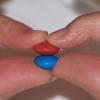
Survival of the Fittest: Battling Beetles
Source Institutions
This guided inquiry three-part activity engages learners in thinking about the mechanism of natural selection through data collection and pattern recognition.

Rhythm Painting
Source Institutions
In this activity, early learners create paintings by making music and rhythm. Learners place paper in cans, add paint-soaked beans (or pebbles) and put the tops on.

Gieant Sieve Sorter
Source Institutions
This Exploratorium activity explores size and scale. Through four levels of screen sizes, learners can sort out objects of different sizes.
Interference in a Ripple Tank
Source Institutions
In this optics activity, learners explore interference by adding wax blocks to a ripple tank.
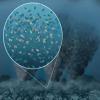
Searching for Life
Source Institutions
In this activity, learners discuss how life is defined and conduct a simple experiment, looking for signs of life in three different “soil” samples.

Sensory Hi-Lo Hunt
Source Institutions
In this outdoor activity, learners use only their senses to to find the extremes of several environmental variables or physical factors: wind, temperature, light, slope and moisture.
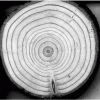
Trees: Recorders of Climate Change
Source Institutions
In this activity, learners are introduced to tree rings by examining a cross section of a tree, also known as a “tree cookie.” They discover how tree age can be determined by studying the rings and ho
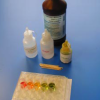
Finding Colors
Source Institutions
In this chemistry challenge, learners combine acids and bases in a universal indicator to create five different colors.

The Great Fossil Find
Source Institutions
On an imaginary fossil hunt, learners "find" (remove from envelope) paper "fossils" of some unknown creature, only a few at a time.

Environmental Chemistry
Source Institutions
In this activity with several mini experiments, learners explore the chemistry that helps scientists learn about the environment and how they can help save it.
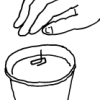
Walk On Water Bugs
Source Institutions
In this activity (on pages 29-35), learners examine water pollution and filtration.
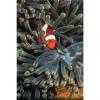
Underwater Hide and Seek
Source Institutions
In this activity, learners experience firsthand how marine animals' adaptive coloration camouflages them from prey.

The Water Cycle
Source Institutions
Did you know that the water we use today is the same water found on Earth millions of years ago? The Earth constantly uses and recycles water in a process called the water cycle.
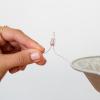
Charge and Carry
Source Institutions
In this activity about electricity, learners produce a spark that they can feel, see, and hear. Learners rub a Styrofoam plate with wool to give it an electric charge.
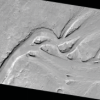
Mars from Above: Carving Channels
Source Institutions
In this activity, learners create channel features with flowing water, comparing their observations to real images of Mars and Earth taken by satellites/orbiters.

Wind Turbine Blade Design
Source Institutions
In this activity, learners design, build and test wind turbines. Learners go through the design process and use the scientific method to test important blade variables.
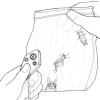
Hopper Herding
Source Institutions
In this outdoor activity and game, learners roundup a "herd" of hopping insects and find out how many different kinds or species are in their herd.

Radar Mapping: What's in the Box?
Source Institutions
In this activity, learners mimic remote sensing. Learners use a stick to measure the distance to a "planet surface" they cannot see, and create their own map of the landscape.
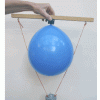
Springs and Stomachs
Source Institutions
In this demonstration, learners investigate mass, gravity, and acceleration by dropping a wooden bar with a balloon attached to its underside, a mass suspended from it by rubber bands, and a sharp-poi

Separating a Mixture
Source Institutions
This activity was designed for blind learners, but all types of learners can explore means of physically separating a mixture using dissolving, filtration, and evaporation.
